Tasty Tuesday
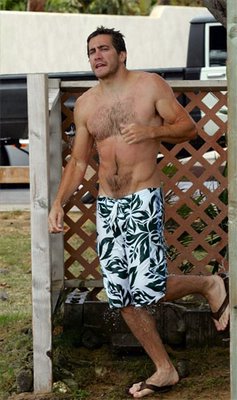
‘A Gay Old Time’...
“Flintstones, meet the Flintstones, They’re a modern stoneage family.
From the, town of Bedrock, They're a page right out of history.
Let’s ride, with the family down the street, Through the courtesy of Fred’s two feet.
When you’re, with the Flintstones, Have a yabba dabba doo time, A dabba doo time, You'll have a gay old time!”
Fred Flintstone was the man! Even as a kid you could relate to his humbling fumblings. Fred and Mr. Barney Rubble always had the best of intentions — endearing they were.
I can still see the rack of rib tipping the car over and Fred standing there, at the end of each episode, banging on the door screaming “Wilma!!!” — good stuff — maybe you remember. Fred, however, did not always seem to be having a “gay old time” and the use of the word “gay”, as a descriptor, has certainly changed with time.
The “Gay Nineties” (1890’s it was), or “gay” as Fred’s song used it, were reference to the bright, happy, merry, light-heartedness of the day. In our culture today, the expression most often refers to a particular sexual orientation. If you’re a kid aged 10-17, however, the word gay can describe nearly anything. The weather is gay, the idea is gay, the teacher is gay, the food is gay, the shirt you’re wearing is gay! I can’t tell you how the word came into play with such descriptive versatility but it has. If you’re not familiar, good for you. If you’re curious, ask your kid.
Kids, young men in particular, have shared with me that this word gay has nuclear-destruction capability to the human feeling system. Said by the wrong kid, in the wrong place, at the worst of wrong times, (when all peers you care about are around) can cripple a kid on the inside. Most don’t show it, of course, but this one touches deep down in hurtsville.
One thing is for sure; most schools would be better off not hearing it in their classrooms, hallways and cafeterias. I’m also fairly certain that most schools take the opportunity when hearing the word to explain what the word gay refers to and how a young person can appear a little brighter by not describing nearly everything on earth with it. Maybe at home, as parents, we can simply remind ours how ridiculous they sound when using it.
Its funny how the old “sticks and stones will break your bones but names will never hurt me” adage from our youth seems so utterly absurd at times. As parents, we charge on and keep up the effort! Let’s wrap it up with another “great one” adage:
We can re-train the brain, said Twain:
“There is nothing training cannot do. Nothing is above its reach. It can turn bad morals to good; it can destroy bad principles and recreate good ones; it can lift men to angelship.”
— MARK TWAIN
I’m not sure about the angelship business but we’ll keep trying.
Happy Yabba Dabba Doo Summer Days! If Barney would have said that, Fred may have fired back, “How Droll!”
Edward C. Clark 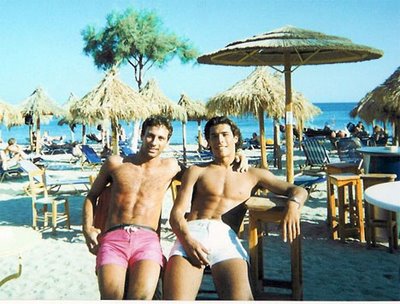
Oprah: Gayle and I are just friends, not lesbian lovers
Oprah Winfrey and her friend Gayle King want to be clear: they're not gay.
In the August issue of O, the Oprah Magazine, the talk-show host explains that some people misunderstand her close friendship with King.
"I understand why people think we're gay," she says. "There isn't a definition in our culture for this kind of bond between women. So I get why people have to label it -- how can you be this close without it being sexual?"
In a long article, Winfrey, 52, and King converse about their 30 years of friendship and "four-times-a-day phone calls." King, who hosted "The Gayle King Show" in 1997, is an editor of O, the Oprah Magazine.
The two friends say they would have no problem telling the public if they were in a sexual relationship.
"The truth is, if we were gay, we would tell you, because there's nothing wrong with being gay," says King.
Says Winfrey: "Something about this relationship feels otherworldly to me, like it was designed by a power and a hand greater than my own. Whatever this friendship is, it's been a very fun ride."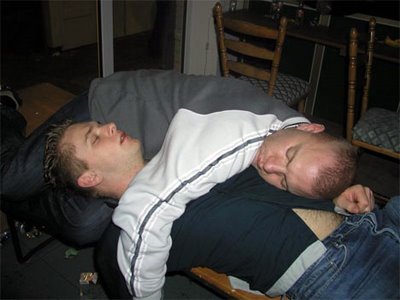
Palestinian refugee rentboys in the Lebanon
“I'M NOT GAY. Don't write that I'm gay,” implored Tarek, a 22-yearold resident of Chatila, a Palestinian refugee camp of more than 12,000 inhabitants just south of Beirut.
Based on appearance, Tarek seems to be the typical young man hanging out at the
Corniche, the Lebanon's oldest gay cruising ground. Like most Lebanese young men, he wore a fashionable white shirt, dark blue jeans and brown shoes.
Unlike most Lebanese young men, however, his shirt wasn't meticulously pressed, his jeans had holes that weren't put there by a designer and his shoes did not shine. He was tall, very slim, clean-shaven, and looked much younger than he said he was.
I first saw Tarek leaning alone on the railing by the beach. He whistled at me, asked me the time, and I sat down with him to talk. Through our conversation, the tragedy of his life became evident.
“I started sleeping with men about a year ago, when I was hanging out with friends on the Corniche. They left and I was here alone. A man came up to me and asked me if I wanted to…” he said, rubbing his index fingers together to insinuate sex. I asked how much and he said 'sixty dollars.' And that was that.”
Tarek comes to the Corniche once or twice a week, where he sits alone most of the night. He lives with his parents, and says they don't know. “I don't come with my friends any more; I don't think they know. I don't want them to know. If I see someone here I know, I move.”
His secrecy is helped by the fact that his parents don't ask him where he goes at night, “They see I have money and they don't have to give it to me.”
Tarek chose to engage in prostitution because it was the easiest way to make money in a country where Palestinians are pushed to the outskirts of society. Unlike in Jordon and Syria where Palestinians have full civil rights, Lebanon denies access to public services including health care, education and the right to vote to the Palestinian refugees within its borders. This is despite the fact that they make up ten per cent of the Lebanon's population.
Worse still, they can barely work. Until June 2005, Palestinians were banned rom working in over 70 professions. Currently, they are forbidden from working in around 20.
Most Palestinians, if they can find work,work in manual fields such as agriculture and construction, but are rarely paid a living wage. Thus,The Lebanon has the highest percentage of Palestinian refugees living in abject poverty, according to the UN Relief and Works Agency for Palestinian Refugees (UNRWA).
In the Palestinian camps, the poverty is immediately apparent. Houses are shoddy constructions built hastily out of cinder blocks, and often have no glass in the windows. The streets are small, dirty, and cramped, most of which are too small for cars. The sewer system is gravely inadequate.
This is the part of The Lebanon no one really sees, for even though the camps are in the middle of highly populated neighbourhoods, they are walled off, with few entrances, and the Lebanese never enter them.
Like many young Palestinians, Tarek went to a Palestinian school, but dropped out because he said there was no point in studying law if he could not work as a lawyer. He has held a few jobs, mostly washing cars or working in grocery stores, but more often than not, he is jobless.
“I feel like I climbed the cedar tree, and someone chopped it down,” he joked, alluding to the symbol of The Lebanon.
“My father works in construction, but I have two sisters. We barely eat,” said Tarek. He said that he brings home food every once in a while, and tries not to eat at home, so his mother doesn't have to make food for him.“I don't want to make it worse.”
He says that working as a prostitute is “not bad.” “The sex is bad, but the money is good. I don't know how else I can make so much money,” he claimed.
Tarek can usually pick up one or two guys a night, for a price of US$15-$40 each. The men normally approach him, and they go to the beach, to a field, to a car, or to the man's house.
I asked him if he felt worried that someone would hurt him. “It happens,” he said. He told me a story about how he got in a car with a man one night who was drunk. He beat Tarek with an empty beer bottle, took his money, and kicked him out of the car.“But I can get hurt anywhere in this country,” he adds.
I asked him if he knew any of the other young men on Corniche. “I know a few,” he answered, adding that he didn't tend to talk with them. He pointed out areas where he knew people hung out.
“The ones down there do it because they like it; they think they're women,” he said, indicating a spot near a wall. When I questioned if that was a bad thing, he just asked,“Is it?” and poked me in the ribs.
Tarek says he doesn't like sex with men, and keeps his eyes closed. “I'm never the woman,” he states, indicating that he never played the passive role.
“Do you not like gays?” I asked, and he pointed to himself and the Corniche.“Look at me, look what I have to do. What do I care what other people do? Lebanon hates me, Lebanon hates gays, everyone hates Israel; it's all the same. It's worthless. I hate hate,” he said.“But me, I'm not gay,” he reiterated.
I asked why he was speaking with me when no one else would. He replied, “What do I care? I have nothing else to do right now!”
When asked about protection, Tarek answered, “I would use condoms, but people don't like them and they don't bring them. What am I going to do, carry them with me? Sometimes I worry about HIV, but most times I don't. It's not a big deal.”
Tarek's views represent the sentiments of a great many gay men in Lebanon. The Joint UN Programme on HIV/AIDS (UNAIDS) reports that the prevalence of sexually transmitted infections (STI’s) suggests the use of condoms is insufficiently widespread.
Additionally, UNAIDS says there is a great potential for a massive increase in the number of HIV infections in Lebanon for many reasons, one of which is that fact that men who have sex with men also tend to have sex with women. Thus, if HIV breaks out in the gay community, it can then be introduced into the straight community, which will feed it right back into the gay community, creating a perilous cycle.
The condemnation of gay sex leads gay men to conceal their practices from health workers.
In 2003, the Lebanese government reported that there were 750 cases of HIV in the country and now reports around 900, a 20 percent increase. However, UNAIDS claim that the true figures are likely to be at least three times as high.
For Palestinian refugees in The Lebanon, healthcare is almost exclusively handled by clinics run by UN. “We have a good AIDS prevention program in the clinics,” said Dr Jamil Yusef, Head of UN's medical division in the country. He said the programme contains free testing and counselling services, paired with information that is dispersed into the Palestinian community.
“The prevalence of HIV is higher among heterosexuals than homosexuals. Very rarely do you see a case of HIV that was transmitted through homosexual sex,” Dr Yusef said.
When asked whether he thought cases of HIV could greatly increase in number in the future,Yusef said,“I'll tell you one thing: Usually people who suspect that they have AIDS hide it and go to a place where they take the test at their own expense. Most of the cases are detected when they get symptoms. Unfortunately, most of them come at the final stages of AIDS”.
Dr Yusef argues that people affected by HIV and AIDS do not visit UNRWA because they are afraid of stigmatisation by society. The camps are small, introspective communities, and everything anyone does is bound to be seen by someone else. There's a fear that if someone visits UNRWA, they will be discovered by the rest of the community and will be shamed. It's only at the last stages of the disease, when they feel they have nothing left to lose, that they come forward.
Upon a visit to the UNRWA clinic at Bourj el-Barajneh, the Beirut area's largest Palestinian camp, with over 20,000 refugees, a different story was conveyed. In the small tiny clinic tucked away on a side street, Dr Mohammed Khatim said that HIV testing does not take place in the camps, and if anyone is suspected of having HIV, they are sent to the American University of Beirut for testing. In 2005, he said he sent no one. “Because it's seen as a very bad thing morally, they don't come here,” he said.
Helem, the only organisation that actively targets the gay community for HIV prevention, will be starting a campaign aimed at the Corniche in July, in cooperation with the United Nations Population Fund (UNFPA) and UNAID. Helem will visit the Corniche between the hours of 11 pm and 1 am twice per week for a year, offering condoms, brochures, and free counselling, with possible testing services.
“HIV outreach is the key to reaching these people,” Georges Azzi of the group told PinkNews.co.uk. When asked whether people will be hesitant to take advantage of the bus's services, Mr Azzi said he didn't think so.“There won't be 'gay' written in big letters on the side of the bus,” he said.
This is the second campaign on the Corniche that Helem has participated in with the UNFPA. According to Mr Azzi, the campaign was run last year by UNFPA, with help from Helem. “This is the first time we're really doing what we think is best,” he said.
Nevertheless, I still worry about Tarek. As I was leaving him, he called to me,“Tell them I'm handsome,” which he certainly was. “No. Tell them I'm good,” he added with a wink.
More than anything, however, Tarek is resilient. He's Palestinian in a country that discriminates against Palestinians and working in the gay sex trade in a country that discriminates against gays. And yet he still smiles.
This article first appeared in The Pink News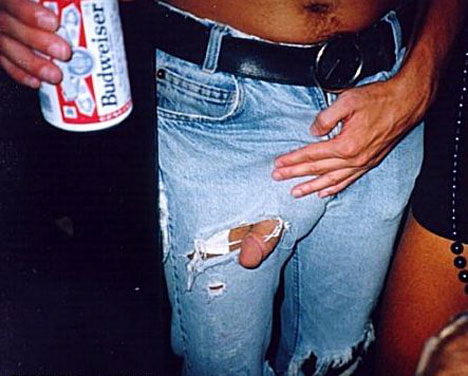
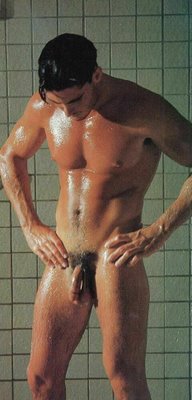
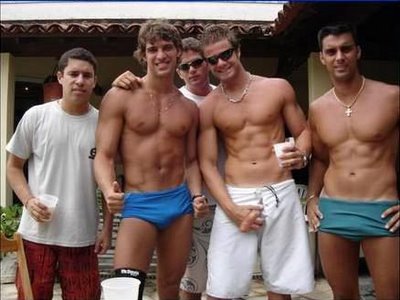
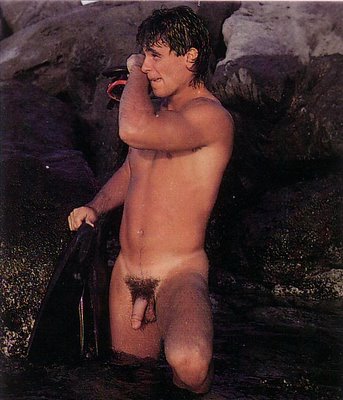
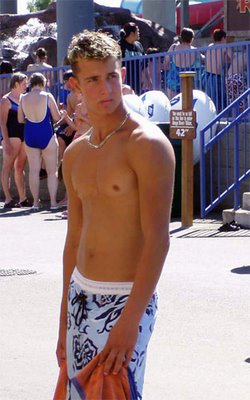









1 comment:
Very cool design! Useful information. Go on!
» »
Post a Comment